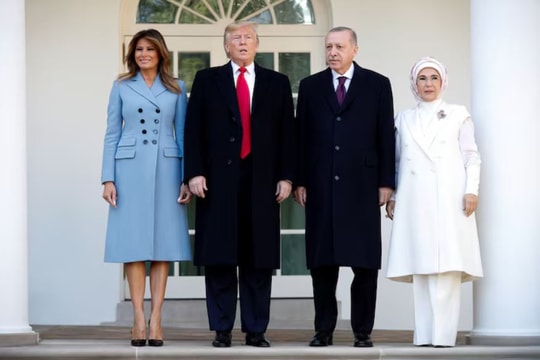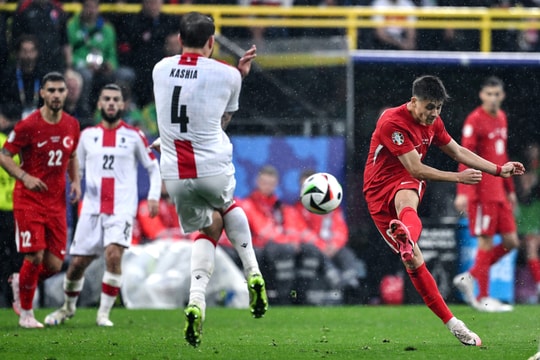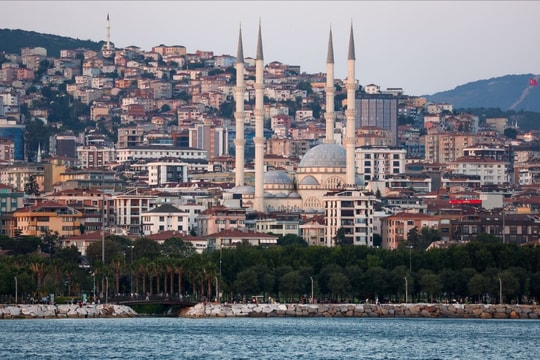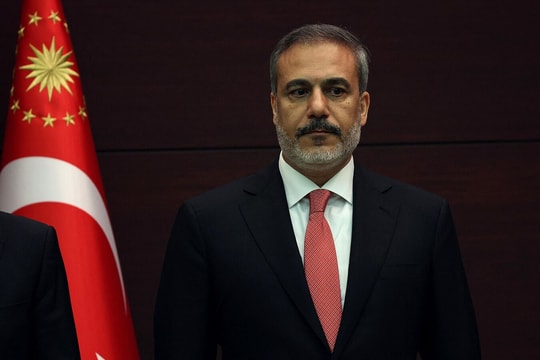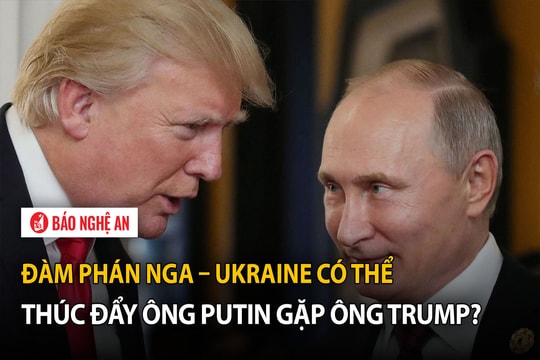Behind Türkiye's decision to send troops to Libya
(Baonghean.vn) - While the US-Iran tensions are threatening to "burn" the Middle East with mutual retaliations, in Libya, war is also at risk of breaking out with a complex proxy war. Türkiye's decision to send troops to Libya is said to make the persistent deadlock in this country even more difficult to resolve and could turn Libya into a "second Syria".
Controversial decision
As predicted by observers, the Turkish Parliament has approved the deployment of troops to Libya. This step was taken after Türkiye and the UN-recognized Government of National Accord (GNA) in Tripoli signed a security and military cooperation agreement in late November, allowing Turkey to provide military equipment and training to the GNA. Shortly after, President Erdogan announced that Turkey would increase military support to Libya if necessary, with options for using ground, air and naval forces being considered.
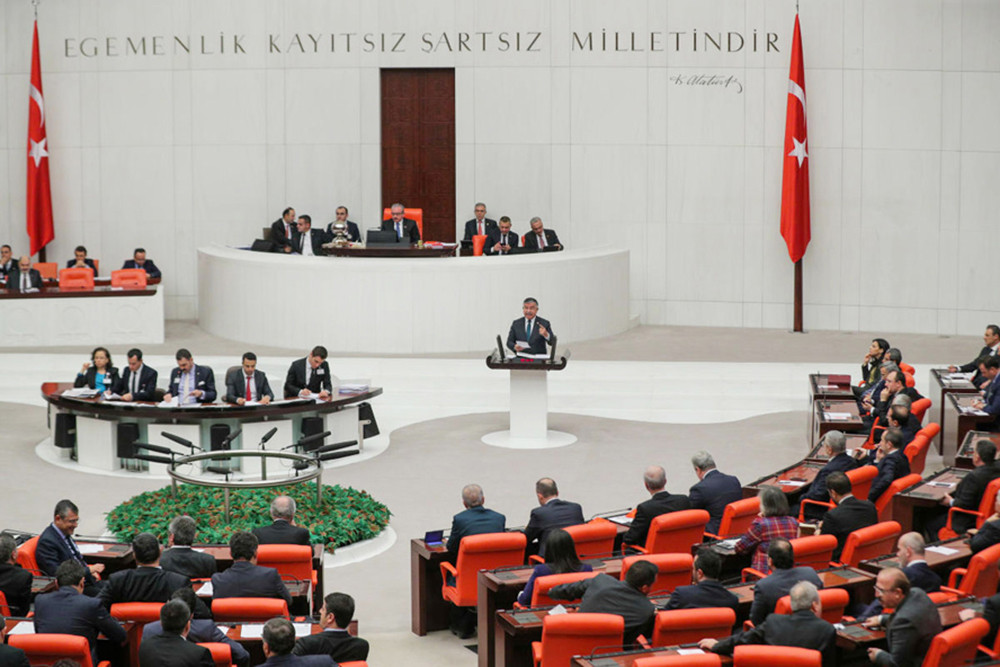 |
| Turkish Parliament approves sending troops to Libya. File photo |
Thus, Türkiye is the second country in the region, along with Qatar, to stand on the side of the Libyan Government of National Accord (GNA). It should be recalled that, since the 2011 coup that overthrew leader M.Gaddafi, Libya has not been able to escape the complicated civil war. The country has fallen into a state of deep political division with two parallel governments. The internationally recognized GNA operates in the capital Tripoli, while the Libyan National Army (LNA) led by General Khalifa Haftar is based in the East and is conducting campaigns to control the capital Tripoli. The fighting has left thousands of people dead and forced 120,000 civilians to flee their homes.
It is worth noting that the Libyan crisis is difficult to find a way out because of the intervention of many external forces. The GNA is supported by Türkiye, Qatar and Italy, while General Haftar is supported by Egypt, the United Arab Emirates (UAE), Saudi Arabia and receives political support from the US, Russia and France.
Turkish President Tayif Erdogan’s stated goal is to help all sides move towards a ceasefire and restore stability. By supporting Libya’s legitimate government, Türkiye hopes to restore the balance of power between the GNA and LNA – the first step towards a political solution. However, expectations are one thing, implementation is another. For now, Turkey’s decision to intervene militarily in Libya will cause waves of fierce controversy.
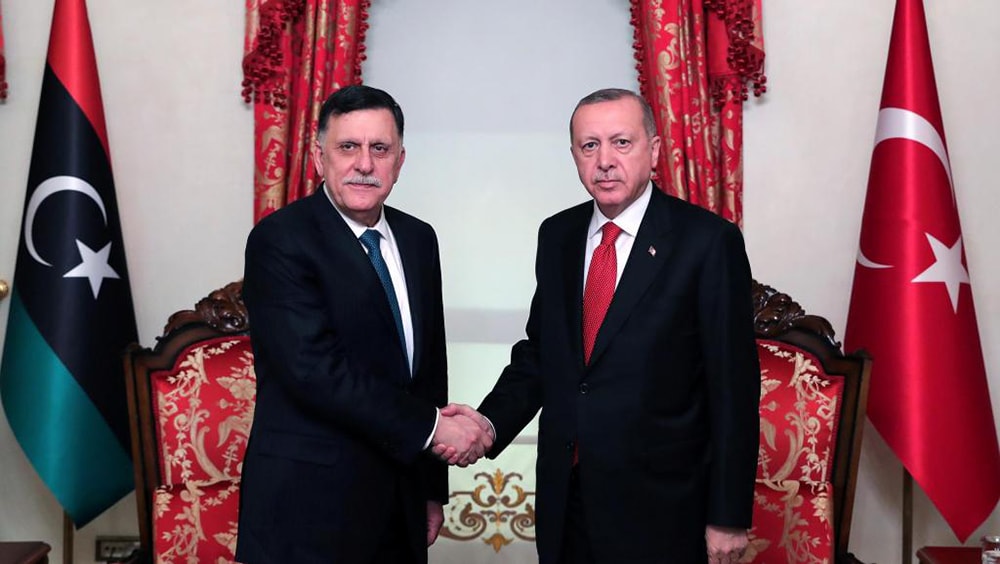 |
| Turkish President Tayyip Erdogan (right) met with Libyan Prime Minister Fayez al-Sarraj in Istanbul, in November 2019. Photo: Reuters |
Following the Turkish parliament’s decision, General Khalifa Haftar ordered the mobilization of forces and organized “holy war” against what he described as Türkiye’s “occupation”. Haftar also called on Arab countries to support his LNA forces against Ankara. In the latest development, at least 28 people were killed and dozens injured in an airstrike on a military school in the Libyan capital Tripoli, currently controlled by the Government of National Accord. The Libyan Interior Ministry condemned the airstrike and blamed the LNA forces for carrying it out in retaliation for the GNA’s “collaboration” with Ankara.
Not to mention the dissatisfaction from other countries that are “backing” the LNA such as Egypt, the UAE or Saudi Arabia. In the long term, it is very likely that the presence of the Ankara military in Libya will form a confrontational front between regional powers in this North African country. Thus, the question of whether Türkiye’s military presence in Libya can bring peace or cause more instability is quickly being answered.
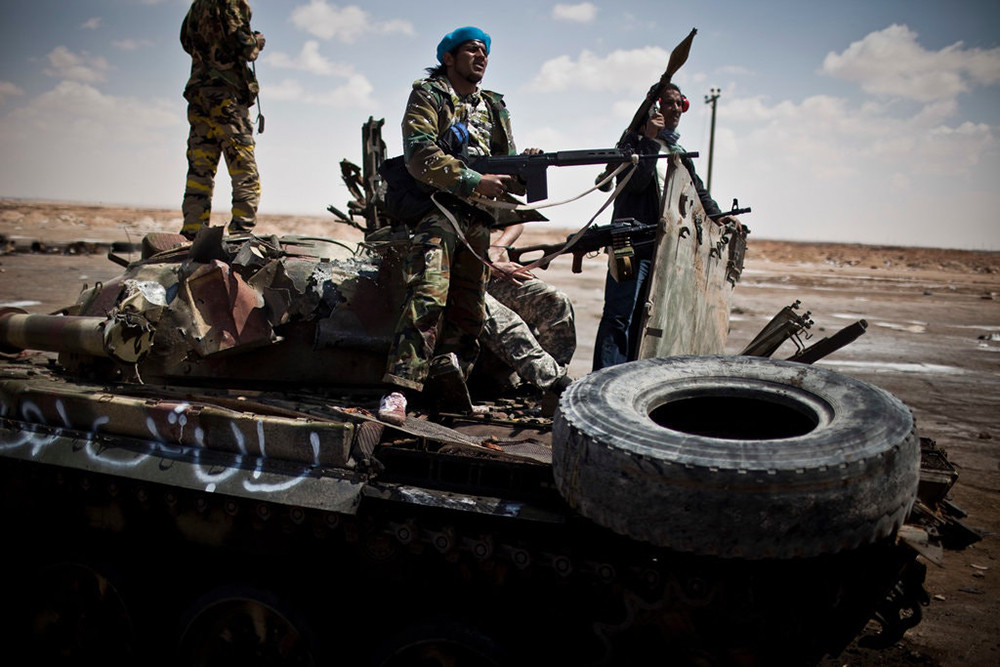 |
| Türkiye-backed rebel group in Tripoli. Photo: New York Times |
Türkiye's Purpose
The scale and nature of Turkey’s military deployment in Libya remains unclear, but there are several reasons for Ankara’s decision to intervene. First, there are the geopolitical aspirations that President Erdogan is pursuing. Turkey’s move in Libya is just the latest example of the country’s military expansion into the surrounding region. Since 2016, Turkey has opened military bases in Qatar and Somalia, intervened three times in Syria against Kurdish forces, and sent naval vessels to disrupt gas drilling operations in Cyprus, the Eastern Mediterranean. A few weeks ago, the Turkish Navy even chased Israeli ships out of Cypriot waters.
These actions are seen by regional observers as a message of Ankara’s strength on its way to becoming a regional and global power. After winning the 2018 election, Mr. Erdogan declared that he would focus on turning Türkiye into an international power. Global powers often have independent foreign policies and seek influence over neighboring countries and regions. In the case of Libya, Türkiye wants to have a say in the country’s future during and after the civil war, as this is the country that provides “leverage” for Ankara to reach out to the Mediterranean.
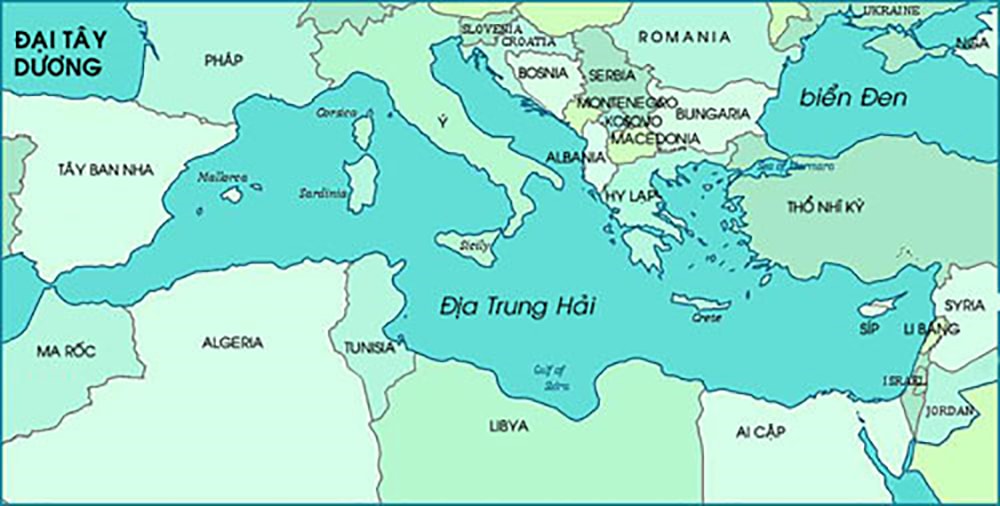 |
| Map of the Mediterranean region. |
It is very likely that, in addition to military support activities for the GNA, Türkiye will quickly deploy the construction of a military base in Libya.
Ankara’s goal is to reduce the influence of other regional and especially extra-regional powers and become the “leader” of the Libyan conflict itself. This will confirm Ankara’s position as the new center of power in the Middle East and North Africa. And thus, Libya will most likely become a “second Syria” as the country’s future will depend on external powers.
In addition, Türkiye's expansion of power abroad is also aimed at protecting its major economic and strategic interests. Observers say that Ankara would never sign a military cooperation agreement with the current government in Tripoli if this government did not agree to sign a maritime agreement at the same time. That agreement gives Türkiye rights in a large area of the eastern Mediterranean, which has abundant oil and gas resources but is disputed with Greece, Egypt, Cyprus and Israel.
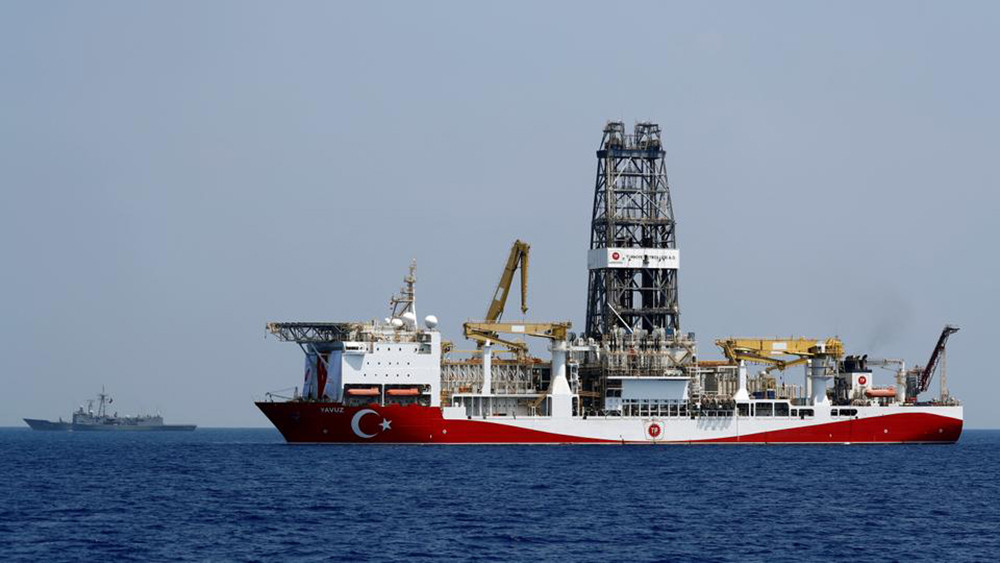 |
| A Turkish oil drilling vessel heads out into the Mediterranean Sea, off the coast of Cyprus in August 2019. Photo: Reuters |
In other words, by “shaking hands” with the Libyan Government of National Accord (GNA), Türkiye hopes to redraw the maritime border. If the GNA government finally liberates the country from civil war, the trade contracts that Ankara signed with Tripoli will be realized. With such goals, Türkiye will certainly continue to promote a more independent and assertive foreign policy in the coming time. But this will also cause the regional geopolitical situation to contain unpredictable risks of instability.

